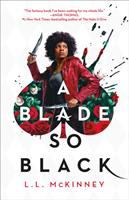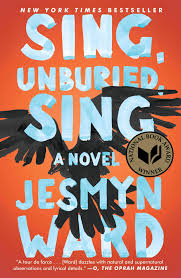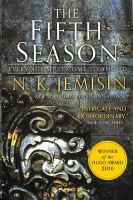 As a longtime reader, I haven’t always put that much thought into how books are made and published. I don’t mean the mechanics of writing books – someone magically comes up with an idea and has the willpower to write down all 50,000-200,000 words (which basically sounds like science fiction to me). I mean beyond that. How does a book get published, and how does it get promoted? How does the bestseller list work? How does a book go viral and become the book that everyone wants to read that year? And, as we continue to have vital discussions about racism in society – how does systemic racism interfere with Black, Indigenous, and other racialized authors’ success in the publishing world?
As a longtime reader, I haven’t always put that much thought into how books are made and published. I don’t mean the mechanics of writing books – someone magically comes up with an idea and has the willpower to write down all 50,000-200,000 words (which basically sounds like science fiction to me). I mean beyond that. How does a book get published, and how does it get promoted? How does the bestseller list work? How does a book go viral and become the book that everyone wants to read that year? And, as we continue to have vital discussions about racism in society – how does systemic racism interfere with Black, Indigenous, and other racialized authors’ success in the publishing world?
To that end, authors L. L. McKinney and Tochi Onyebuchi started a discussion on Twitter asking authors to reveal how much they were paid for their book advances – specifically to highlight the racial disparity between how much Black and non-Black authors were paid – using the hashtag #PublishingPaidMe. And if you’ve been paying attention, you can probably predict the results, which is that Black authors – established, award winning Black authors, debut Black authors, all authors – are not receiving close to the advances that their white counterparts are. For some direct comparisons…
 National Book Award Winner Jesmyn Ward wrote about her experience trying to receive a book advance commensurate with her publishing accolades, including having won the National Book Award in 2011 for her second novel, Salvage the Bones. Only after arguing was she granted a six-figure advance for her next novel published in 2017, Sing, Unburied, Sing – which also won the National Book Award, making Jesmyn Ward the first woman to win two National Book Awards.
National Book Award Winner Jesmyn Ward wrote about her experience trying to receive a book advance commensurate with her publishing accolades, including having won the National Book Award in 2011 for her second novel, Salvage the Bones. Only after arguing was she granted a six-figure advance for her next novel published in 2017, Sing, Unburied, Sing – which also won the National Book Award, making Jesmyn Ward the first woman to win two National Book Awards.
Even after Salvage the Bones won the NBA, my publishing company did not want to give me 100k for my next novel. My agent and I fought and fought before we wrestled our way to that number.
— Jesmyn Ward (@jesmimi) June 8, 2020
Contrast her experience with that of Emily St. John Mandel. Emily St. John Mandel wrote three books prior to her breakout novel Station Eleven in 2014, which was a finalist for that same National Book Award that Jesmyn Ward won twice. And while winning the National Book Award meant that Ward was able to negotiate a $100,000 advance for her next novel, Emily St. John Mandel was given over $800,000 for the novel she wrote after Station Eleven, The Glass Castle.
#publishingpaidme Advances for 5 novels (US rights only:)
Last Night in Montreal: $7k
The Singer’s Gun: $10k
The Lola Quartet: $15k
Station Eleven: $210k
The Glass Hotel: $800k— Emily St. J. Mandel (@EmilyMandel) June 8, 2020
 Or, let’s look at Science Fiction. John Scalzi, former president of the Science Fiction and Fantasy Writers of America and one-time Hugo Award winner for a novel in 2013, tweeted about his various book deals, ending with a 13 book, $3.4 million dollar deal with Tor, but not before making $115,000 for one book and $100,000 each for a three book trilogy. These book deals are states without years attached to them, so it is difficult to tie when he started earning more money with specific events that may have lead to that. But he does write on his blog that he associated being an established writer, when he started winning awards and had bestsellers and an existing series that was still selling well, to receiving those $100,000 contracts. Compare his experience with N. K. Jemisin, who won the Hugo Award for each of her books in the Broken Earth trilogy – the first author to win back-to-back Hugo awards for every book in a trilogy, and the first Black author to win in the Best Novel category of the Hugo Awards. Following those ground-breaking wins, Jemisin went on to receive $60,000 for each book in her next science fiction series.
Or, let’s look at Science Fiction. John Scalzi, former president of the Science Fiction and Fantasy Writers of America and one-time Hugo Award winner for a novel in 2013, tweeted about his various book deals, ending with a 13 book, $3.4 million dollar deal with Tor, but not before making $115,000 for one book and $100,000 each for a three book trilogy. These book deals are states without years attached to them, so it is difficult to tie when he started earning more money with specific events that may have lead to that. But he does write on his blog that he associated being an established writer, when he started winning awards and had bestsellers and an existing series that was still selling well, to receiving those $100,000 contracts. Compare his experience with N. K. Jemisin, who won the Hugo Award for each of her books in the Broken Earth trilogy – the first author to win back-to-back Hugo awards for every book in a trilogy, and the first Black author to win in the Best Novel category of the Hugo Awards. Following those ground-breaking wins, Jemisin went on to receive $60,000 for each book in her next science fiction series.
OK, found it. I got $60,000 for each of the Great Cities books. So my memory inflated it, whee!
Things to remember as y'all discuss this: I am not a YA writer and never have been. Not a romance writer either. Those fields make a lot more money than SFF.
— N. K. Jemisin (@nkjemisin) June 7, 2020
As N. K. Jemisin explicitly states in her tweet regarding this advance, there are many things to consider when comparing what authors have received for their respective advances. Books of different genres cannot be compared directly, as they are of very varying popularity. White male authors did not participate in the Twitter conversation as frequently as other authors, so it is difficult to make other direct comparisons. In a different thread, Jemisin explains how advances from publishing companies work. In essence, it is the publishing houses’ attempt to decide how much a specific book will sell, based on the author’s popularity and previous earnings, awards earned, and – crucially – demographics of who the publisher will be purchasing the book. And as with many other media industries, the publishing industry is overwhelmingly white, which directly affects which books are published and what size advances are granted to authors. This also affects the diversity of the publishing industry as authors who are not granted advances that one can live off of cannot afford to continue writing, except with some second or third job (which it sounds like most authors have, anyways!).
I encourage you to continue to educate yourself about the diversity of the publishing industry. There are several articles linked in this blog post that you will find interesting. Having done the work to educate yourself, you may be wondering… what can I do? This issue isn’t a political one where you can write to your city councillor or member of parliament and demand change. Well, in the publishing industry, we can vote with our dollars. And with our attention. Take a look at what you’ve read over this past year or several years (and yes, taking into consideration that reading during quarantine is extremely difficult for many of us). Take efforts to diversify your bookshelf and your reading history. If you’re not sure of where to start, reading challenges like Book Riot’s Read Harder Challenge will give you some prompts. Or, find other book recommendations from Vaughan Public Libraries staff! Ode to Joy is an excellent blog post with book recommendations by Black authors full of cheer and happiness, perfect for quarantine reading. What Did You Learn/Unlearn contains links to many booklists and resources that you can use to diversify your to-read list as well. And participate in #blackpublishingpower – a movement to show the publishing industry the power and clout that Black authors have.
But above everything… keep reading! And when in doubt, I seriously can’t recommend the Broken Earth trilogy enough.
I’ve been following this hashtag loosely, and I’m not surprised by any of it (I’m sure none of us are). Not even NK Jemisin getting a fraction of John Scalzi’s advance money, despite being a MASSIVE presence in the SFF world. But what I am surprised about is Emily St John Mandel getting $800,000 for The Glass Hotel!!! What!!! I know Station Eleven was a huge success but numbers like that are wild to me.
I remember having this same sort of balking at advance numbers during that whole Caroline Calloway scandal (https://www.buzzfeednews.com/article/stephaniemcneal/caroline-calloway-the-cut in case you’re not familiar), as someone who particularly did not earn that kind of money. She was (is?) an Instagram influencer and was paid either a $500,000 or $375,000 (depending on who’s telling the story) advance to write a memoir, and then she DIDN’T EVEN WRITE IT. She lost all the money and then had to pay $100,000 on top of that for breaking the contract. All because she didn’t feel like writing it. Meanwhile, Jemisin is getting $60,000 despite all the awards and acclaim. It’s truly enraging.
I missed the Blackout publishing thing, but it looks like I still have a couple of days to participate! Thanks for posting about this.
It’s so wild!! There were also so many YA fantasy authors that revealed getting $300k-$500k for debut trilogies that I’ve never even heard of.
I remember the Caroline Calloway thing – didn’t it also turn out that the memoir proposal was written by her friend? I wonder if Calloway has burned enough bridges that if she actually pulls her act together and writes her memoir, if anyone will actually publish it. Sadly, I think they would.
YES there was that whole expose by her ex-friend who was apparently her ghost writer. Honestly the details are all so confusing. Unfortunately I just watched an interview with Caroline Calloway (weird timing) where the interviewer mentioned that she sold her story to a production company (https://youtu.be/1yaYwmVD1Hg if you feel like torturing yourself). So potentially a movie is in the works, which I imagine would mean MORE money. I really need to stop reading about this girl lol I get so angry about everything.
I’m glad people are talking about how much money they’re estimated at being worth, because there is clearly so much bias to work against. The industry has a looooong road of change ahead of them.